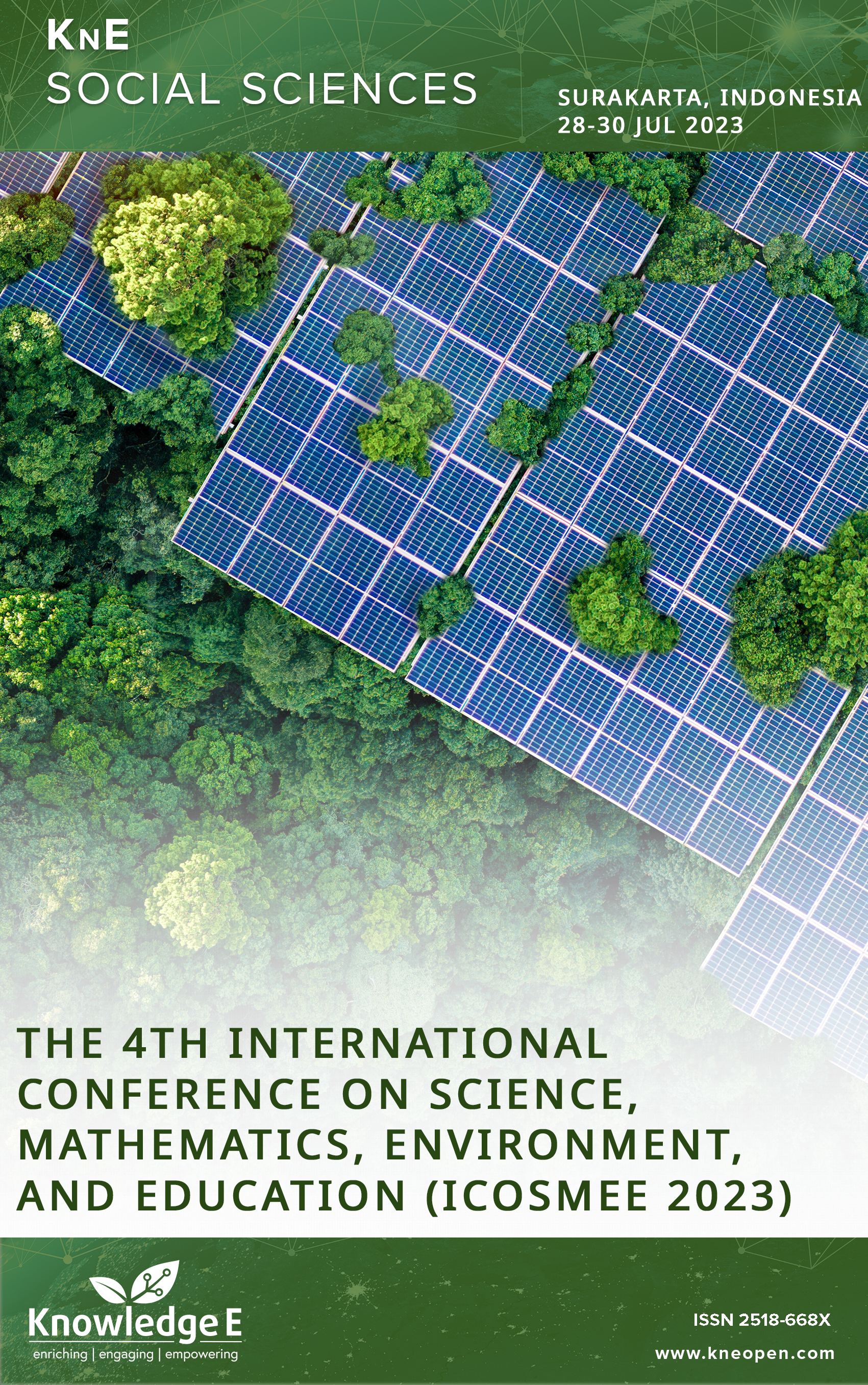Developing the Learning Trajectory of Grade VII SMP Students on Prism Volume Material in Problem-based Learning
DOI:
https://doi.org/10.18502/kss.v10i11.18738Keywords:
learning trajectory, problem-based learning, prism volumeAbstract
This research aimed to produce a learning trajectory on prism volume material in problem-based learning, carried out in three stages: preparing for the experiment, designing the experiment, and retrospective analysis. The research subjects were students of class VII in two Wonogiri junior high schools. The trial of Hypothetical Learning Trajectory (HLT) for cycle 1, or the so-called pilot experiment, involved 6 students of class VII E and trial of HLT for cycle 2, or the so-called teaching experiment, involved 32 students of class VII G. The instruments for data collection were observation sheet, interview protocol, and learning video recording. The prism volume learning trajectory started from defining the prism, determining the elements of prism, grouping examples and non-examples of prism, and finding the formula for the volume of prism. The results showed that the learning trajectory can assist students in finding and developing an understanding of the prism volume formula.
References
Plomp T. Educational Design Research: An Introduction. An Introduction to Educational Research. Enschede, Netherland: National Institute for Curriculum Development; 2007. pp. 10–51.
Gravemeijer K, Cobb P. Design research from a learning design perspective. In: van den Akker J, Gravemeijer K, McKenney S, Nieveen N, editors. Educational design research. 2006. pp. 17–51.
Özdemir BG. Mathematical Practices in a Learning Environment Designed By Realistic Mathematics Education: Teaching Experiment About Cone and Pyramid. Eur J Educ Stud. 2017;3(5):405–30.
Aisah LS. Learning trajectory of prism volume concept in junior high school mathematics learning. In: Proceedings of the National Seminar on Mathematics Education. 2019. p. 223234.
Published
How to Cite
Issue
Section
License
Copyright (c) 2025 Luthfi Almira, Budi Usodo, Yemi Kuswardi

This work is licensed under a Creative Commons Attribution 4.0 International License.

